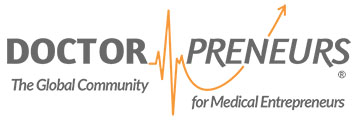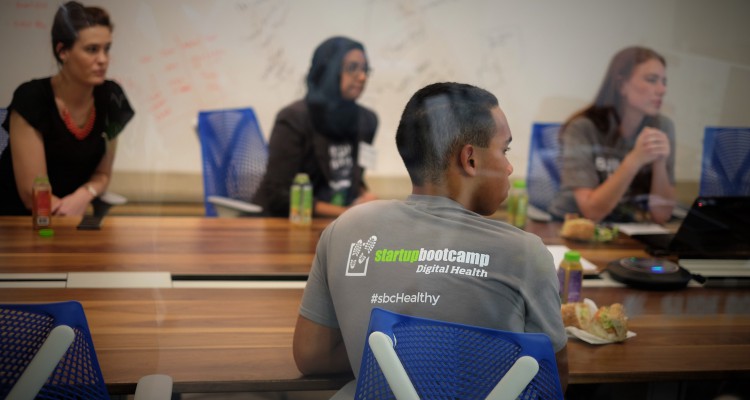 Last June I applied to medical school in America. My friend sent me a copy of her application from the previous cycle so I knew what to expect. I filled out my premedical course requirements, my activities, my test scores, and my personal statement. My pre-health adviser recommended highlighting activities of leadership, community service, and scholarly activity. A pre-health adviser is a faculty member in American colleges that advises students on how to enter graduate programs in medicine, dentistry, and nursing. After spending several days agonizing over the content and possible typos I pressed submit.
Last June I applied to medical school in America. My friend sent me a copy of her application from the previous cycle so I knew what to expect. I filled out my premedical course requirements, my activities, my test scores, and my personal statement. My pre-health adviser recommended highlighting activities of leadership, community service, and scholarly activity. A pre-health adviser is a faculty member in American colleges that advises students on how to enter graduate programs in medicine, dentistry, and nursing. After spending several days agonizing over the content and possible typos I pressed submit.
I knew my application failed to tell a coherent story. I took full advantage of my liberal arts education. I completed courses in government philosophy and constitutional law, worked with the sustainability office on environmentally friendly initiatives at the college, and worked with several healthcare nonprofits. I envisioned medical school admissions officers dismissing me as a dilettante, a dabbler of medicine. American medicine values experts and specialized care. I bought into this value system during my application cycle, but my mindset subsequently started to change during my gap year in Miami after my undergraduate studies. A new context, the entrepreneurial ecosystem of Miami, changed my beliefs on the possibilities of a doctor’s role in healthcare. My immersion into this ecosystem began with my introduction to Health 2.0.
I envisioned medical school admissions officers dismissing me as a dilettante, a dabbler of medicine.
I attended my first Health 2.0 event in Miami in December after attending a few medical school interviews. Jennifer Lannon and Sidonia Rose Swarm started the chapter in Miami. These two young women inspired me with their dedication to healthcare outside the stereotypical MD role. Jennifer aims to create and foster the health tech community in Miami, while Sidonia pursues ventures in telehealth and travel. At the event, I listened to Startupbootcamp Digital Health’s Christian Seale and his pitch about a healthcare accelerator that targeted health disparities in Miami. I prepped for my medical school interviews with literature on the social determinants of health. No article mentioned entrepreneurship as a solution.
I was intrigued.
Many physicians claim “medicine just isn’t like it used to be” in the United States. Yes, medicine is changing, and physicians cannot be sidelined during these major changes. The role of a physician changes with the needs of the community, but many physicians choose to ignore and disengage with this process. It costs a lot of money and time to become a doctor. I understand why many physicians feel entitled to the reigns of the healthcare system after climbing the medical community’s totem pole. Unfortunately, this strict hierarchy does not apply to all the stakeholders in healthcare and healthcare as a problem. I saw this played out during a healthcare hackathon on childhood obesity run by MIT Hacking Medicine and sponsored by Startupbootcamp Digital Health.
A “hackathon” invites multidisciplinary members of the community for a weekend to solve a specific problem, in this case, childhood obesity. Engineers, computer programmers, students, teachers, parents, and yes physicians, attended the event and formed teams to come up with solutions to solve this complex problem. The hackathon reinforced the idea that providing good healthcare extends outside the medical sphere. Points of intervention exist before and after a diagnosis. Doctors can choose to ignore these points of leverage, or choose to engage the entrepreneurial community to help lead these initiatives.
After these experiences, I am a changed person. I started seeking out entrepreneurial physician role models, and came across the Doctorpreneurs podcast. I found the Doctorpreneurs community refreshing compared to the frantic message boards of ‘studentdoctornetwork’. Studentdoctornetwork is an online community for medical students, residents, and doctors where users post anonymously on forums discussing topics ranging from medical school entrance exams to changes in the physical exam. Unfortunately, some users take advantage of the anonymous feature to play on other users’ anxieties about getting into medical school or qualifying for their desired specialty. I now value collaboration, teamwork, and forward thinking in my field, and the stories on the Doctorpreneurs website reflect these qualities.
I now value collaboration, teamwork, and forward thinking in my field, and the stories on the Doctorpreneurs website reflect these qualities.
I believe every physician, medical student, and healthcare member can benefit from these stories.
A physician can no longer stand alone and effectively handle all the shortcomings in the healthcare system. A community of entrepreneurship and collaboration allows physicians to solve these problems collectively as innovators and disruptors in the healthcare community.


